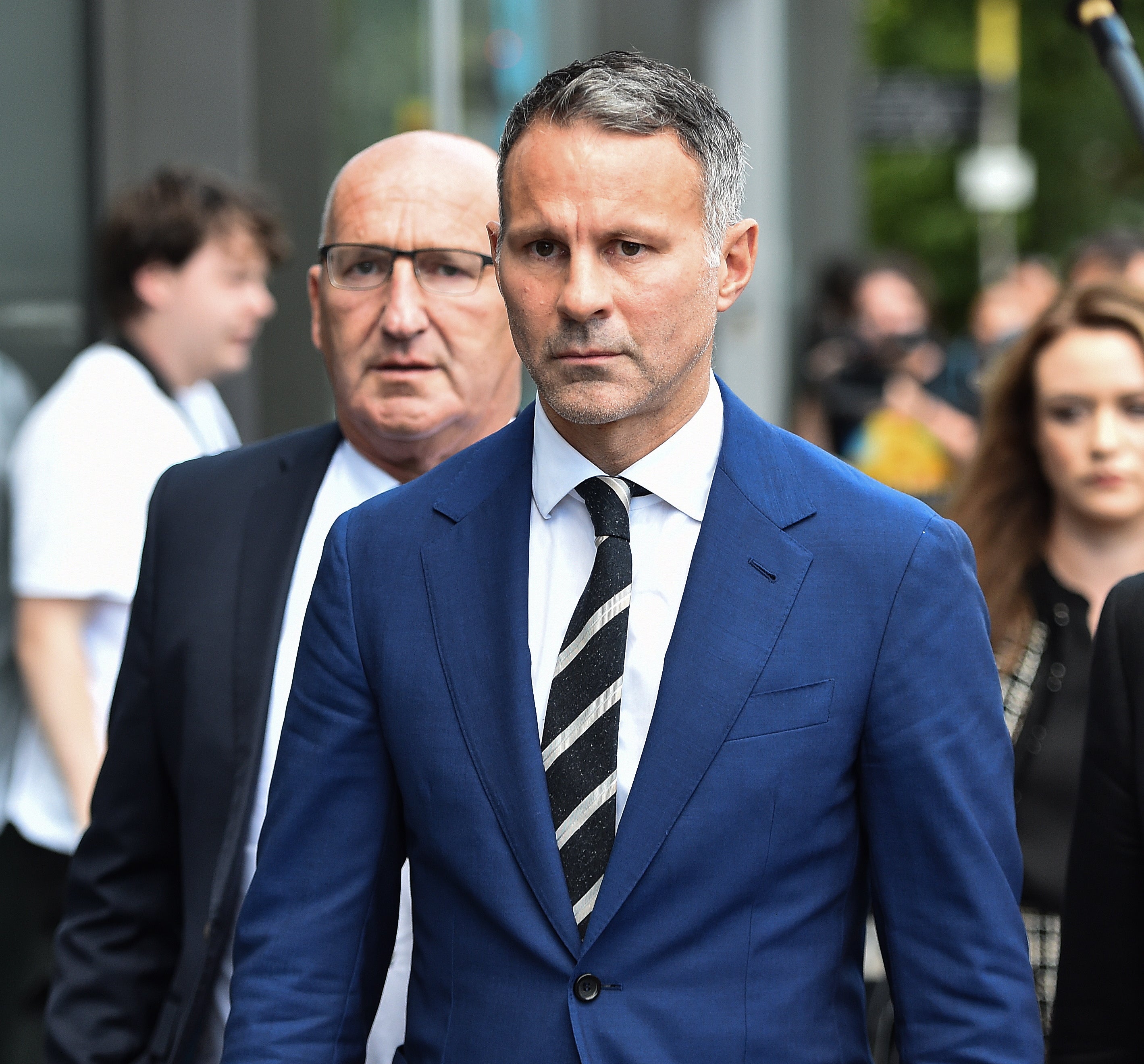
Gary Neville is to be referred to the Attorney General for potential contempt of court over a social media post made on the first day of Ryan Giggs’s domestic violence trial.
The former Manchester United player’s trial was delayed while Judge Hilary Manley and prosecution and defence lawyers discussed a comment posted on Neville’s Instagram account.
Judge Manley continued with the trial but brought the matter up again after a jury failed to reach verdicts and was discharged on Wednesday.
The Crown Prosecution Service has been given seven days to decide whether to seek a retrial, with new hearings unlikely to happen until June 2023 at the earliest.
Judge Manley said she had referred the issue of the comment to the government’s top lawyer, Attorney General Suella Braverman.
She said: “One other relevant matter I should deal with, on Wednesday the 10 of August, day three, the prosecution brought to my attention a social media post.
“Both the prosecution and defence agreed with me, in the absence of any comment from the jury, and given my clear direction, the trial could properly continue.
“However, given the author is a person with a high public profile and his social media account has 1.5 million followers, it could be seen to be an attempt to influence ongoing criminal proceedings and could be contempt of court.
“Accordingly, I am referring the matter to the office of the Attorney General for the consideration of a potential prosecution.”

On Thursday a spokesperson for the Attorney General’s Office said: “Contempt of court is a serious matter and the Attorney General will review any allegations brought to her carefully.
“We have not yet received a referral”
Neville’s representatives have been contacted for comment.
His agent has reportedly said the post referred not to his friend and former teammate’s trial, but to how the Glazer family are running Manchester United.
During the trial, proceedings were halted when Peter Wright QC, prosecuting, holding a mobile phone, said a social media post “by a member of the public who has a direct connection with this case” had been brought to his attention.
He added: “This may be a matter that requires immediate action, so far as that individual is concerned.”
Proceedings were then adjourned for about 50 minutes before court re-assembled.
Back in court, without the jury, Judge Manley said she had brought the matter to the attention of the presiding, or more senior judge, on the circuit of judges in the region, adding: “No doubt certain steps will be taken.”

Judge Manley said there was no suggestion anyone on the jury was aware or had seen the post and as Kate Greville, Giggs’s ex-girlfriend and the complainant in the case, was part way through giving evidence she did not want to halt proceedings and have the jury wait any longer.
The judge said the issue had caused “considerable delay” already.
Chris Daw QC, defending Giggs, said he wanted to make it “crystal clear” the defendant did not have anything to do with the Instagram post.
The matter was briefly touched on later the same day, with Judge Manley suggesting someone should “have a word with the author”
Mr Wright replied: “The police can certainly give words of advice to the author ... if we can have no more repetitions of social media difficulties, that would help.”
Contempt of court is an offence punishable by a fine or up to two years in prison.
This includes publishing information that creates a “substantial risk” of serious prejudice to a trial, according to the Attorney General’s Office.
The act applies to newspapers, TV, radio and social media.
Giggs had denied controlling or coercive behaviour, assault and common assault but the jury could not agree verdicts.
Additional reporting by Press Association







